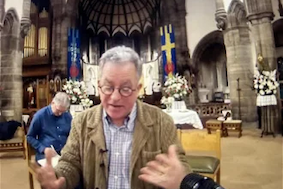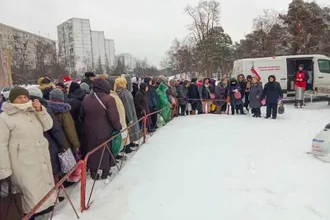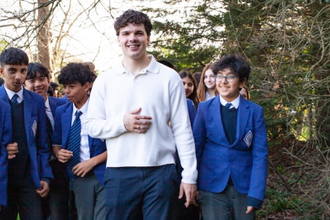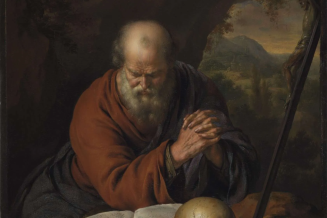European Synod Assembly: Irish voice 'heard loudly and clearly'
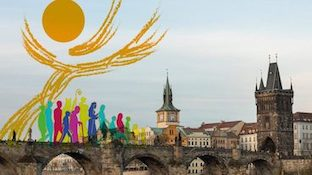
Source: Irish Catholic Media Office
The European Synodal Assembly of the Catholic Church took place this week from 5 - 9 February in Prague. The Assembly brought together 200 in-person and 390 online delegates for prayer, worship, dialogue, discernment and fellowship.
Ireland's delegation comprised fourteen members, with four participating in-person and ten online. Reflecting on the experience, Archbishop Eamon Martin said: "I am very grateful to all of those who participated in our delegation, both online from Ireland, and in person here in Prague. We did our best to faithfully represent what we have been hearing at local, diocesan and national level back at home. It was significant that the voice of the Irish was heard loudly and clearly in the Synod Hall here in Prague, and in particular our emphasis that the Church is wounded by the horrific experience of abuse, and also by the cries of those who feel left out, including the poor, the marginalised, victims of war and violence in the countries of Europe, and others who are experiencing pain and hurt within and without our Church. We are deeply committed to continuing to bring the light of Christ into the world despite our woundedness, and our own need for healing and conversion".
Overall, the Assembly experience and proceedings conveyed a strong affirmation of the Universal Synod on Synodality with its theme 'Communion, Participation, Mission' and of the theme for the Working Document of the Continental Stage, Enlarge the space of our tent. Over the course of the four days participants explored and developed these themes with reference to the concrete, and very diverse, realities that shape the experience of being Church and following Christ in Europe today.
It was significant that this Assembly took place in Prague, a city that has served as a bridge between East and West. Delegates from Ukraine led prayers for peace, and called delegates to reflect on what Christ asks of His Church at a time of war. The shock of the humanitarian disaster in Turkey and Syria was deeply felt and remembered daily in prayer and expressions of solidarity.
The Irish delegation represent a diverse range of backgrounds and experiences, as recommended by the Working Document for the Continental Stage, and all had contributed to the listening processes which took place at local and national level. The Irish Catholic Bishops' Conference, and the Steering Committee for Ireland's national Synodal Pathway, are very grateful to the members of the delegation for their commitment to this process, which has required a significant investment of time not only during the Assembly itself, but in the reading of the submissions received from the local listening and discernment on the Working Document for the Continental Stage and in the collective discernment in preparation for participation. Delegates contributed through a formal presentation from Ireland, as well as through working groups and plenary discussion.
As was mentioned in Ireland's formal presentation, delegates felt a strong sense of responsibility to represent faithfully what has been discerned from the listening that has been underway across all levels of the Church in Ireland for over a year, in all of its diversity, complexity, challenge and hopeful vision for the future. The European Assembly supports and strengthens Ireland's national Synodal Pathway and, in turn, learning from Ireland's journey to date has contributed to the shaping of this important development in the life of the Church in Europe.
Delegates were encouraged by the affirmation of the methodology of 'spiritual conversations' which has been central to the Synodal Process in Ireland. This process has yielded positive results in different contexts across Europe, allowing participants to name their concerns, listen to the concerns of others, build and deepen relationships and discern together how the Church is called to respond. In a Europe experiencing war, significant social fractures and polarisation, this methodology enables the Church to model unity in diversity, to name and explore our tensions, identifying creative tensions which, illuminated by the light of faith, can enhance and enrich the mission of the Church.
Through this process, the Assembly could acknowledge with humility the woundedness of the Church in Europe today with the historic failings and contemporary blind-spots that can impede its mission of evangelisation and reconciliation. The desire to be a more pastorally-sensitive, and pastoral, Church, was clearly articulated with particular attention to those who experience marginalisation, including women, youth, the LGBT+ community, migrants and refugees. The deep and raw wounds of the abuse crisis were kept at the heart of the discernment, while delegates repeatedly recalled the challenge of hearing the cry of the poor and the cry of the earth.
The document prepared by the Assembly drafting committee will be further developed in the coming days and weeks before being published as a further resource for the synodal process at the local, national and international levels.




